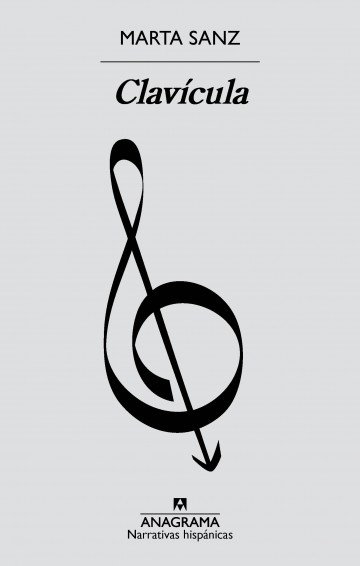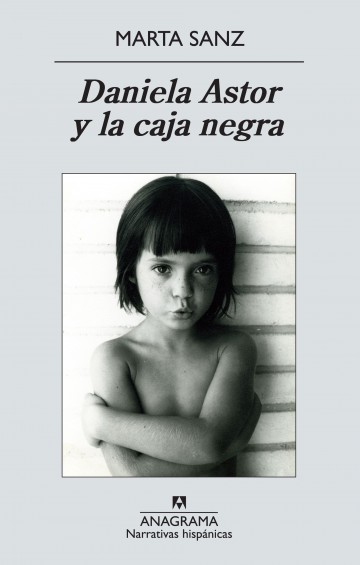| PAGES | 336 |
| SERIES | Narrativas hispánicas |
| PUBLICATION | 25/02/2010 |

SERIES:Narrativas hispánicas
Cristina Esquivel, a woman who works in an old peoples’ home, is found strangled in her Madrid apartment. Her parents hire the detective Arturo Zarco to find the murderer, expecting him to accuse Yalal, a Moroccan labourer who had been married to Cristina, and who now has custody of their daughter. Zarco is a very unconventional detective: 40-something, gay, and still obsessed with his ex-wife Paula, with whom he discusses the vicissitudes of his investigations and even the details of his erotic fascinations. But, beneath the surface of their conversations and his accounts of the comings and going of the suspects, the telephone conversations between the detective and Paula become a pretext for a relationship based on domination and vengeance, describing the pain inflicted on each other by two people who love and hate, need and repel in equal measure. This happens until the dialectical struggle between Zarco and Paula is suddenly interrupted by the discovery of Luz’s diary, one of the neighbours of the murdered woman, and the mother of Olmo, the young man who fascinates and perturbs Zarco.
«An admirable book, constructed like a detective novel, but which quickly transcends the genre ... It has the desolate cruelty and lucidity of the best work of Patricia Highsmith, Edith’s Diary, with which I think this book constructs a dialogue (or perhaps a challenge)» (Rafael Reig, Abc).
«This book could be defined as a thriller, but, without doubt, one of its biggest attractions consists primarily in its radical ambiguity. In one way it conforms to the canons of the genre but, in another way, it can be taken as a lucid metaphor of the present... What is most interesting is the way in which the author uses the resources of the detective novel to reflect the tremulous nature of our age» (Juan Ángel Juristo, Abc).
«This is a whodunit that can be read as such, but also, and above all, it can be read as much more. The author proposes an insurgent reading of the violence of the system and its imperfections. A story in which the idea of crime as a result of social frictions, something worse than a mere pathology, opens the possibilities of a psychological investigation that explore the relationship between cause and effect, not based solely on laboratory tests or forensic autopsies» (ElCultural.es).
«This book is funny, thoughtful, entertaining, but conforms to the rules of the Detective Story.... Under the layer of the story of a murder and the investigation that follows it, the book simulates a discourse on the evolution of literature» (Peio H. Riaño, Público).
«A magnificent novel. It has the best ingredients of the detective novel (noir) with a high-quality feel (intelligent, striking, energetic), but sprinkled (strengthened: enriched: elevated) with juicy interferences which followers of Sanz’s work will recognise with a pleasurable complicity…It has all the elements of a persuasive thriller, but it also has a buzzing narrative that accompanies literary fiction: that which takes hold of a genre and shakes it up to give it a new and profound meaning. Characters that escape stereotype, dialogues that assume various registers, changes of rhythm that invite a dance of sensations and first-class narrative turbulences that sweep the reader from page to page, anxious to discover how this dance of passions and pressures ends...a living autopsy of mundane beings» (Tino Pertierra, La Nueva España).
«This book has something to say. It not only story satisfies the lovers of intrigue, because more than the crime being investigated, the true story is the manipulation that each of the implicated perpetrates on the facts.» (Domingo Ródenas, El Periódico).
| PAGES | 336 |
| SERIES | Narrativas hispánicas |
| PUBLICATION | 25/02/2010 |
TRANSLATION RIGHTS SALES
- Italy (Nutrimenti)
- Hungary (Kossuth)


Marta Sanz has a PHD in Spanish Philology. She has published the novels El frío, Lenguas muertas, Los mejores tiempos (Premio Ojo Crítico 2001), Animales domésticos, Susana y los viejos (runner-up for the Nadal Prize in 2006), Lección de anatomía (2008), and in Anagrama, Black, Black, Black, Un buen detective no se casa jamás, Daniela Astor y la caja negra and Farándula (Herralde Novel Prize 2015). She has contributed various short stories to collections and has published El canon de la normalidad, a selection of her own stories. In 2007, she published Metalingüísticos y sentimentales, an anthology of contemporary Spanish poetry and, the same year, she received the Premio Vargas Llosa NH Story Award. She is also the author of the poetry collections Perra mentirosa and Hardcore, both in 2010. She frequently contributes to the Babelia cultural supplement of the El País newspaper.










